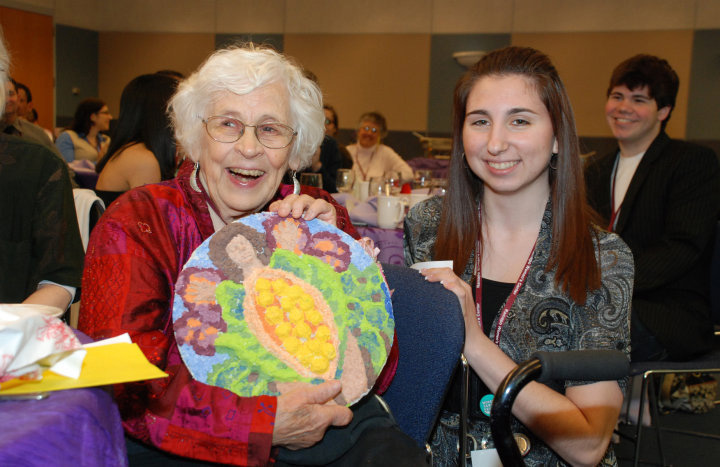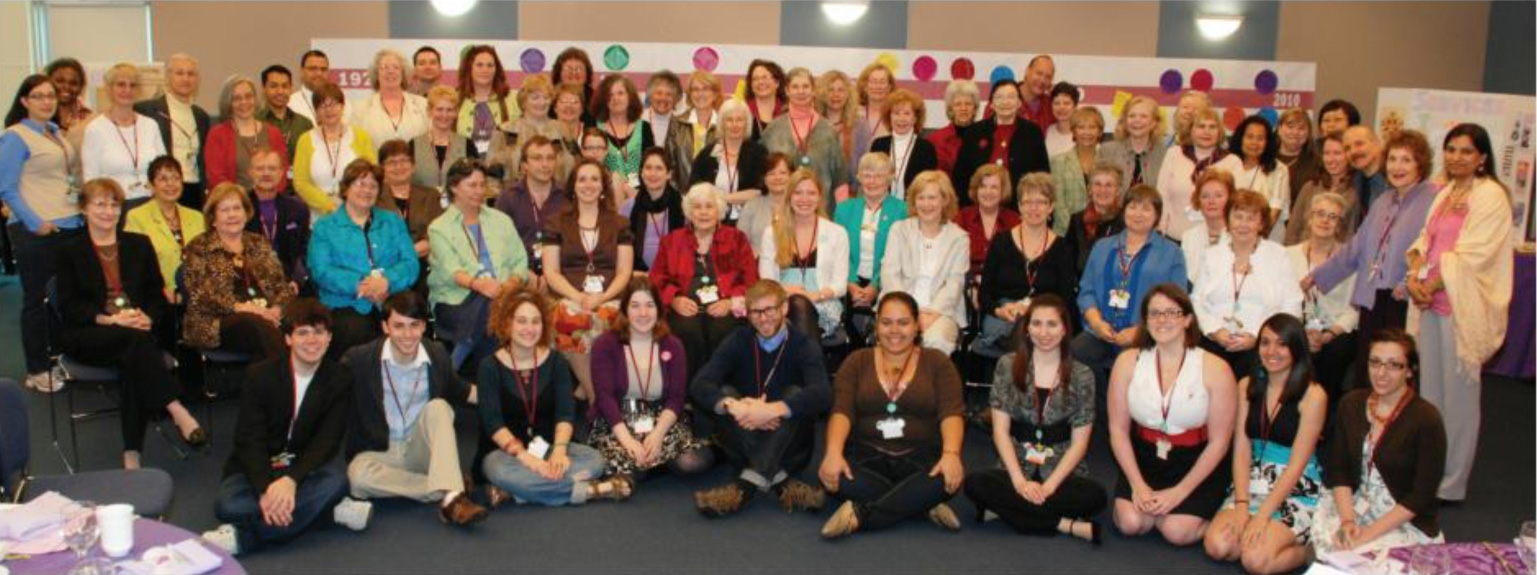College
Ramapo Celebrates
Women’s Center’s 50th Anniversary
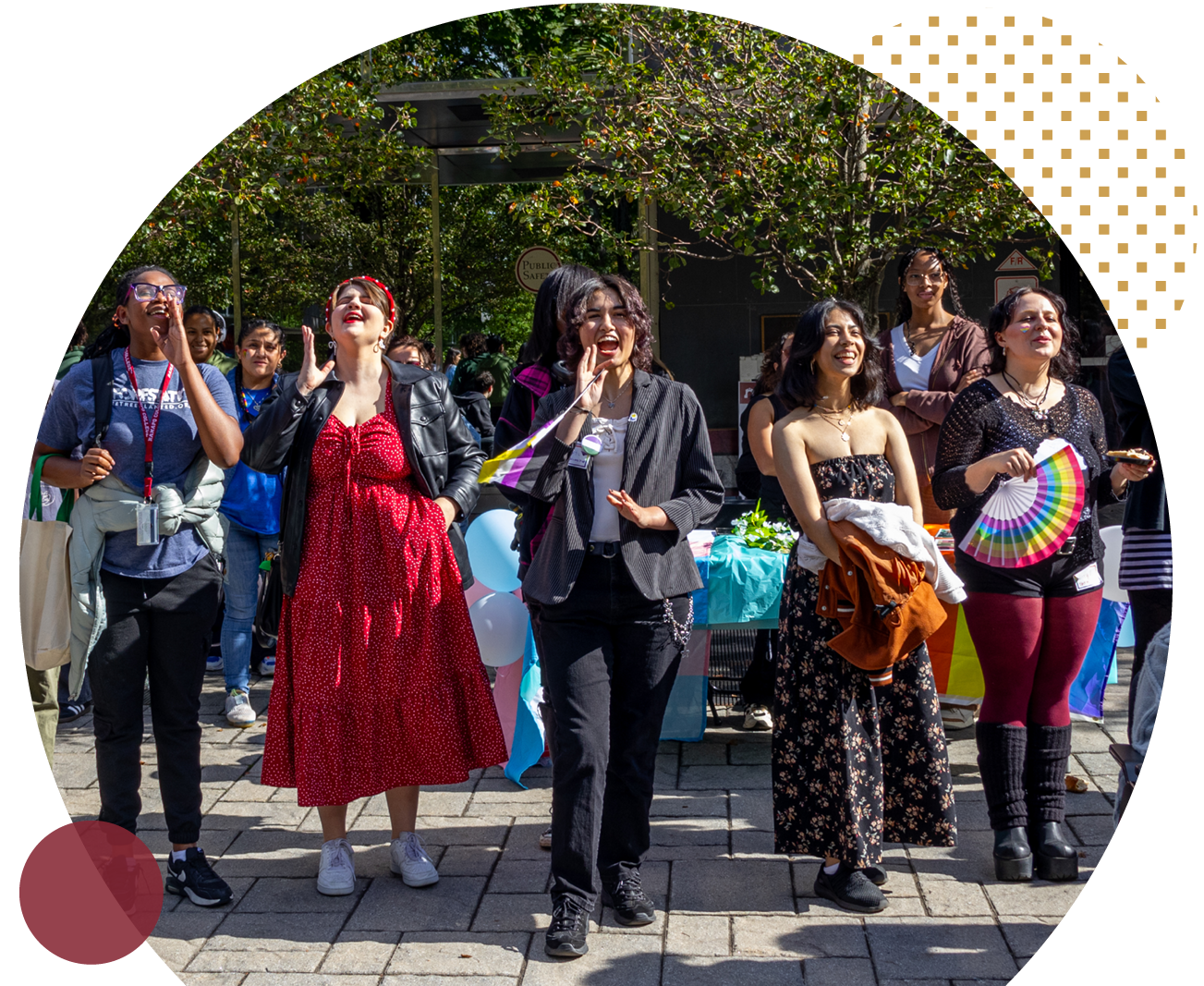
By Professor Regina Clark | Spring 2025
The Women’s Center at Ramapo College, the first in Bergen County, marked its 50th anniversary this year. Officially opened in 1974, the center was a groundbreaking initiative rooted in Professor Lynne Farrow’s work. In 1972, at just 24 years old, Farrow began teaching the course Women in Contemporary Society. It was a pivotal moment during an era of major national change, including the Watergate scandal, discussions on ending the Vietnam War and the passage of the Equal Rights Amendment (ERA).
The ERA prohibited discrimination based on sex, and that made it a good year for women everywhere. Kat McGee, a Ramapo alum who served as coordinator of the Women’s Center from 2008 to 2015, said “Higher education has been a catalyst for many of these advancements, due in no small part to Women’s Centers like our own across the country.”
Now the director of Title IX and institutional compliance at Ramapo, McGee has witnessed the center’s evolution.
Breaking New Ground
In the early 1970s, Farrow’s course gained popularity among female students, prompting her to advocate for a women’s studies minor. By 1973, as concerns over childcare, reproductive health and support for victims of domestic violence and sexual assault grew on campus, she recognized the need for a dedicated Women’s Center.
Construction began that year, and two offices near Farrow’s were demolished to make way for the center. In 1974, it opened its doors on Ramapo’s campus, with Lee Sennish serving as its first acting director for five years. The center quickly became a vital student resource and a hub for advocacy.
“The Women’s Center taught us that feminism is not just a theory but a practice—a daily commitment to creating a more equitable and inclusive world,” McGee said.
Barbara Harrison succeeded Sennish as director and led the center into the 1980s. Under her leadership, feminist programming expanded, bringing influential speakers such as Gloria Steinem of Ms. Magazine and author Charlotte Bunch, editor of the publication, Quest, to campus.
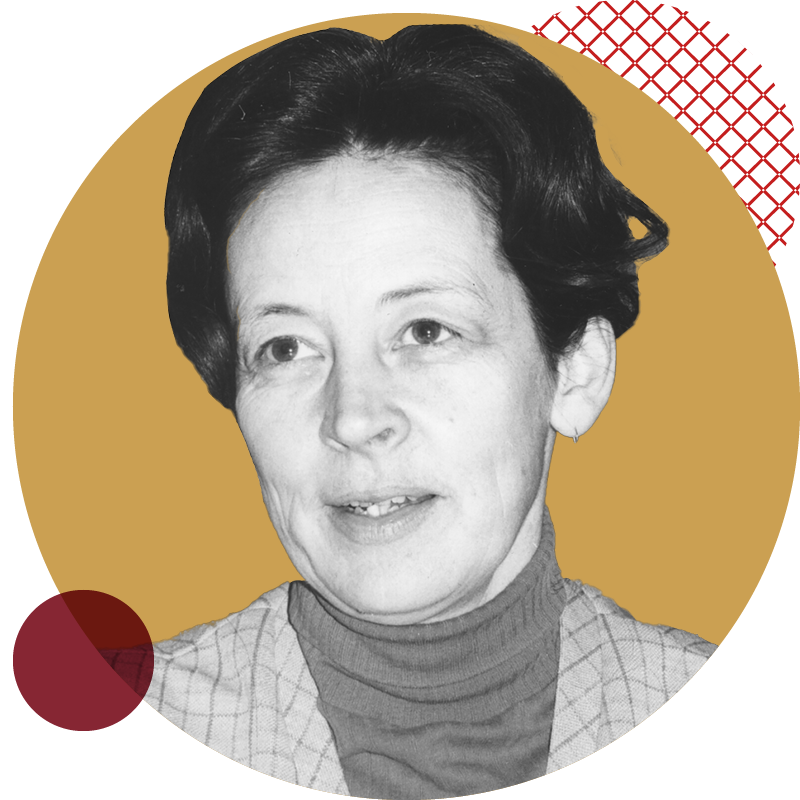
Lee Sennish
Meeting the Needs of Today’s Students
Over the years, the Women’s Center has adapted to meet students’ evolving needs. Marie-Danielle Attis, interim coordinator from 2020 to 2022, emphasized its ongoing relevance.
“We align with the college’s commitment to academic excellence by making our campus a safe and welcoming community for everyone,” said Attis, now assistant director for the Center for Student Involvement and coordinator of the Office of Violence Prevention.
In 2018, the center expanded its programming to include LGBTQ+ services and identity-based peer discussion groups. These groups provide gender and sexual identity-affirming spaces to foster dialogue and education.
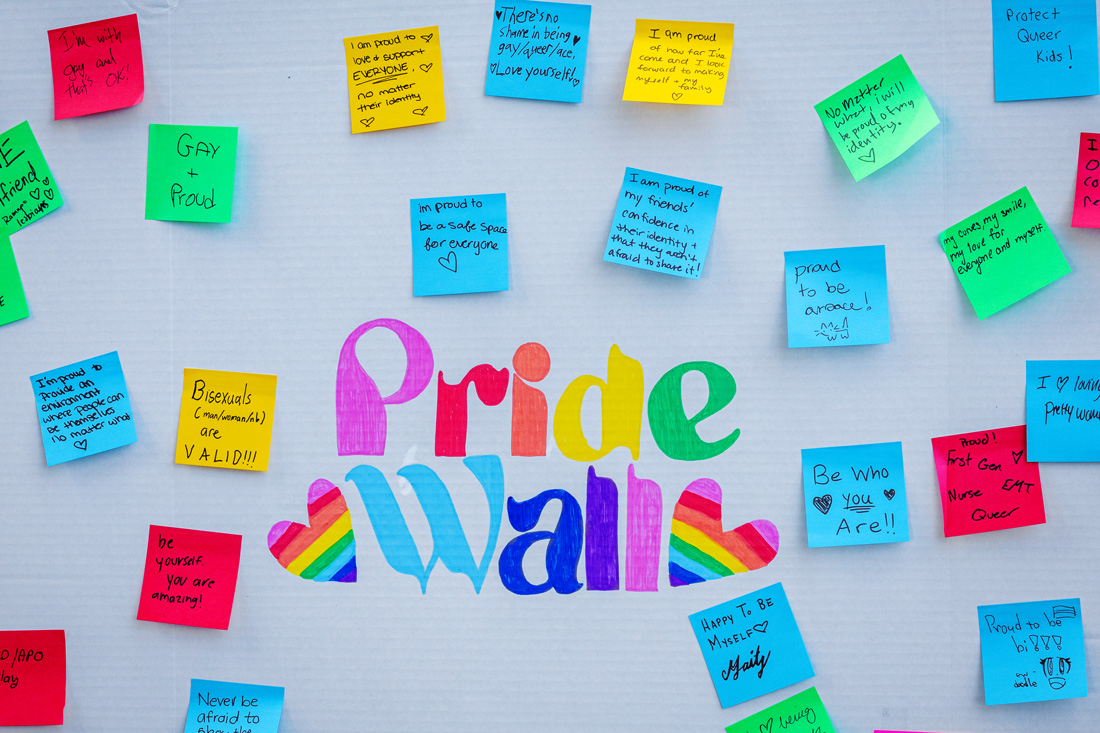
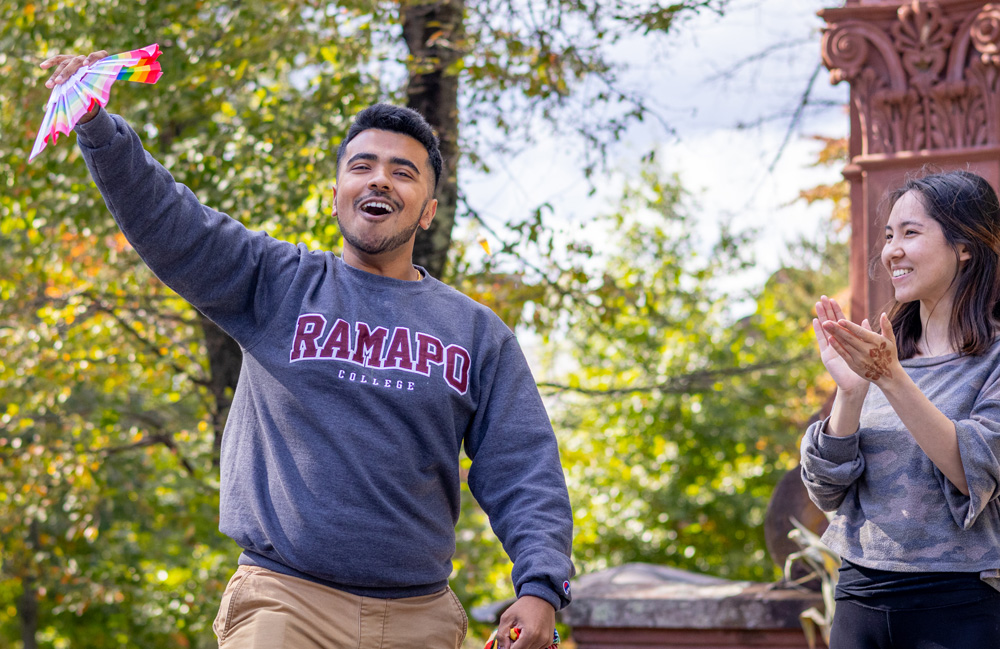
“One of the programs I am most proud of has been the expansion of identity-based discussion groups,” said Dr. Rick Brown, director of the Center for Student Involvement. “For the current year, we have five discussion groups, each facilitated by a student staff member. We are also working to create a new discussion group for male-identified students.”
While some may find it surprising that the Women’s Center serves male students, its broader goal has always been inclusivity. Attis emphasized that students of all genders face challenges today and need various forms of support.
“The Women’s Center is needed now more than ever,” she said. “Whenever times are challenging, we remember our purpose—providing a space where people can meet and collaborate on issues relating to social justice.”
McGee echoed this sentiment, noting that the center remains a crucial resource in today’s political climate.
“In these times, when we witness attacks on the civil rights of women and marginalized communities, the Women’s Center stands as a beacon of safety for many students,” she said.
From its inception to the present, the Women’s Center at Ramapo College has provided advocacy, education and support, ensuring its mission endures for future generations.
Timeline of the
Women’s Center
1972
Ramapo Professor Lynne Farrow introduces the trailblazing course, Women in Contemporary Society.
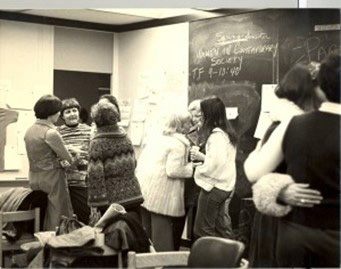
1974
- Ramapo opens the Women’s Center—the first in Bergen County—with Lee Sennish as director.
- The Women’s Center forms affinity groups, including the Single Parent Group, Consciousness-Raising Group, Women-in-Transition Group, Male Sexuality Club, Radical Feminist Group and Rapport: a Returning Women’s Group.
1975
The Women’s Center hosts a weekly forum of ideas that fosters interchange among women, interested faculty members and others.
1976
Sennish encourages the publication of Herstory, a feminist newsletter.
1980
Feminist programming flourishes, with notable speakers visiting campus to inspire activism.
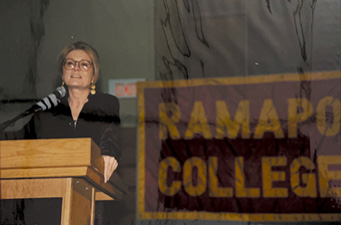
1984
Coretta Scott King speaks at Ramapo College.
1985
The Women’s Center sponsors a gallery display featuring select artwork from Judy Chicago’s “The Birth Project.”
1989
Gender Issues Committee founded with Professor Donna Crawley as chair to address issues of sexual harassment.
1991
- Facing closure rumors, the Women’s Center garners widespread support, keeping its doors open.
- Expanded services include LGBTQ+ initiatives, support groups and medical and legal referrals for women’s health and rights. Consciousness-raising groups on campus include the Feminist Collective and the Gay and Lesbian Alliance Support Group.
1994
Programs explore the intersection of feminism and faith through interfaith discussions and community engagement.
1995
Ramapo holds its first “Take Back the Night” rally against sexual violence.
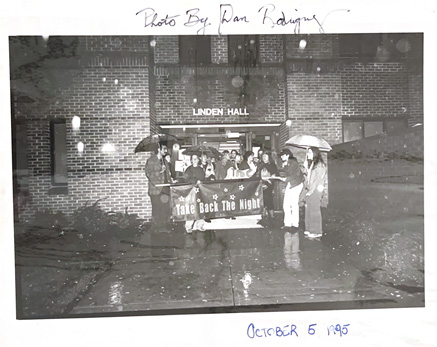
1999
The Assault Contact Team is formed.
2003
The first campus performances of “The Vagina Monologues,” in honor of the global movement to raise awareness and money to stop violence against women and girls on V-Day, are held with 40 Ramapo students. The performances raise nearly $7,500, which is donated to the Rape Crisis Center (now known as healingSpace) of the YWCA of Bergen County.
2005
“Take Back the Night” rally becomes an annual Women’s Center program, raising the voices of survivors of sexual and interpersonal violence. The annual event is still going strong today.
2007
The Clothesline Project debuts, honoring survivors and raising awareness about violence against women.
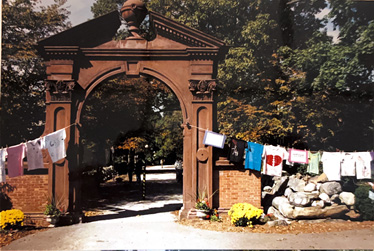
2008
Gender-inclusive housing pilot program launched to provide a welcoming living environment for same-gender, opposite-gender or other-gender identities to live together regardless of biological sex.
2009
- Women’s Center hosts a trip for 30 students, faculty and staff to participate in the National Equality March in Washington, D.C., calling for equal rights for LGBTQ+ individuals.
- Sarah Weddington, the attorney who represented the plaintiff in Roe v. Wade, is the opening speaker for Ramapo’s “HerStory Month” celebration.
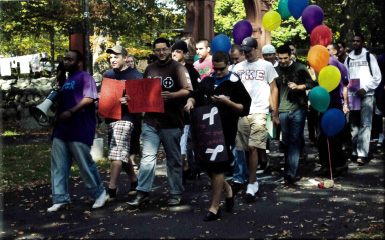
2010
- Cartoonist and memoirist Alison Bechdel speaks at Ramapo College, performing a reading from her acclaimed graphic novel “Fun Home” (recognized in 2006 as the “Book of the Year” by Time magazine).
- Women’s Center alumni reunion held to honor founding Directors Lee Sennish and Barbara Harrison.
- Queer History Month opening speaker, Lt. Dan Choi, speaks about his decade of service under the “Don’t Ask, Don’t Tell” policy that forced American soldiers not to disclose their sexual orientation.
2011
World AIDS Day recognized with keynote speaker Anthony Rapp, actor and singer who originated the role of Mark Cohen in the Broadway production of “Rent.”
2012
A student written, directed and produced performance of the “Body Image Monologues” headlines Eating Disorder Awareness Week.
2015
- Gender inclusive restrooms introduced on campus due to Women’s Center advocacy.
- Ramapo College joins the national “It’s on Us” campaign to end sexual assault on college campuses. Promotion includes a video series produced by student athletes and student leaders.
- Title IX Committee established to advance campus safety and provide equal access to education. The committee implements new procedures to ensure compliance with federal legislation prohibiting all forms of sex and sex/gender-based discrimination in college programs.
2016
The Name Committee is formed.
2017
Ramapo celebrates its first-ever Pridefest.
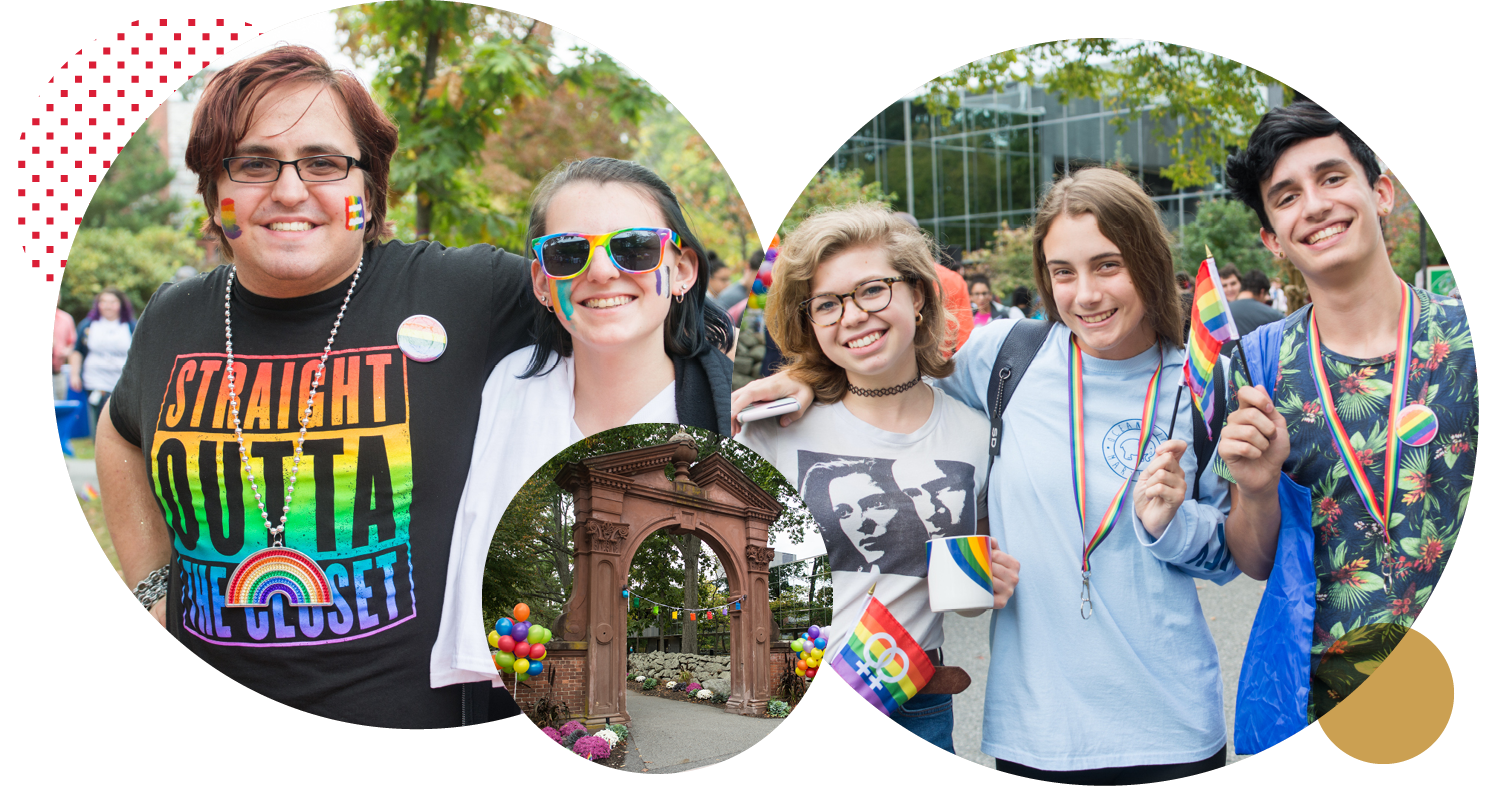
2018
- Identity-based discussion groups launch.
- Ramapo is accepted into NASPA’s Culture of Respect Collective to continue the college’s commitment to address campus sexual violence.
- Reader cards at commencement reflect a student’s used name.
2020
healingSpace opens a satellite office in the College Park Apartments due to actions from the Women’s Center under the Victims of Crime Act grant.
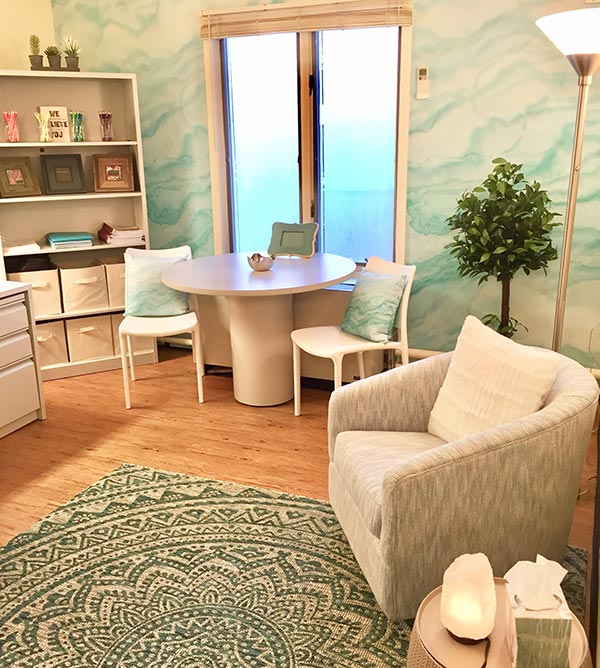
2021
The Women’s Center participates in the inaugural Mahwah Pride event held at Commodore Perry Field.
2023
- The Women’s Center receives a gift of $25,000 in the form of a bequest.
- The national nonprofit organization Campus Pride scores Ramapo College as a four out of five for institutional commitment to inclusive policies, programs and practices.
2024
The Women’s Center celebrates 50 years of advocacy, education and empowerment.

